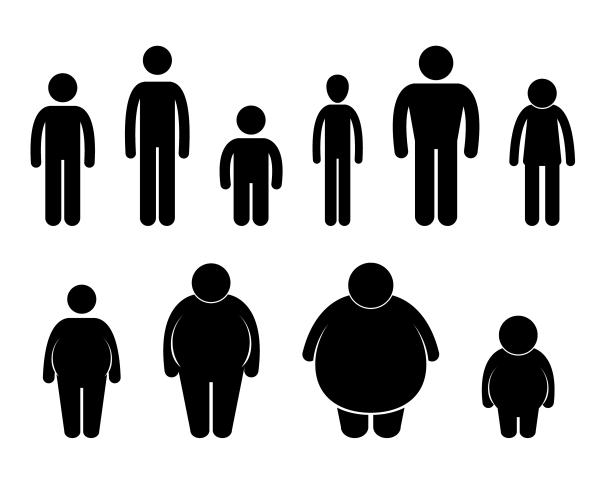One reason that some give for accruing too much body fat is "I have a slow metabolism," a variant on the "blame the genes" approach. And that does make some sense — that is, a slow basal metabolic rate (BMR) means a person with this characteristic is more efficient at using fuels to energize necessary bodily processes. By that I mean things like breathing, having the heart pump blood, keeping body temperature constant. For a sedentary person, BMR can be a significant part of the total daily energy expenditure. But how much can a low BMR be blamed for the weight people gain as they get older?
Two researchers from the Mayo Clinic in Rochester, MN, investigated that question in a group of about 760 individuals participating in various research protocols at the Clinic between 1995 and 2012. These folks were weight stable, non-smokers, and the investigators had access to data on their BMRs, body composition and body weights over the course of their study. Using the BMRs adjusted for sex, age, body fat and body fat-free mass, Drs Pimjai Anthanont and Michael D Jensen determined which people were in the top and bottom 15 percent of BMR. They then analyzed this data to see if the BMR rates correlated with the rate of weight gain that each group experienced during the study period (about 9 years, on average).
They found that there were no significant differences between the rates of weight change of the individuals in the top and bottom 15 percents of BMR rates. For subjects with normal weight as measured by their BMIs, the high BMR group had a higher weight gain rate than the low BMI group — though statistically significant, the difference was not very large — 0.7 vs 0.2 kgm/year. For those with BMIs in the obese range (>30), there was no difference between the high and low BMR groups with respect to rate of weight gain.
The authors concluded: "These findings indicate that adults with low BMRs are not uniquely predisposed to future weight gains." These results are both intriguing and contrary to expectations, since previous studies had found the opposite results. However, the authors suggested that those prior investigations had been carried out in rather unique populations, and thus might not be generalizable to other groups. Further, they suggest that those with lower BMRs might eat less or be more active than others, lifestyle factors that could explain the results of the current study.
But the fact that this was a retrospective study, in which the investigators couldn't ask participants about lifestyle characteristics is a weakness, and thus substantiation of these results certainly requires independent replication by others.




